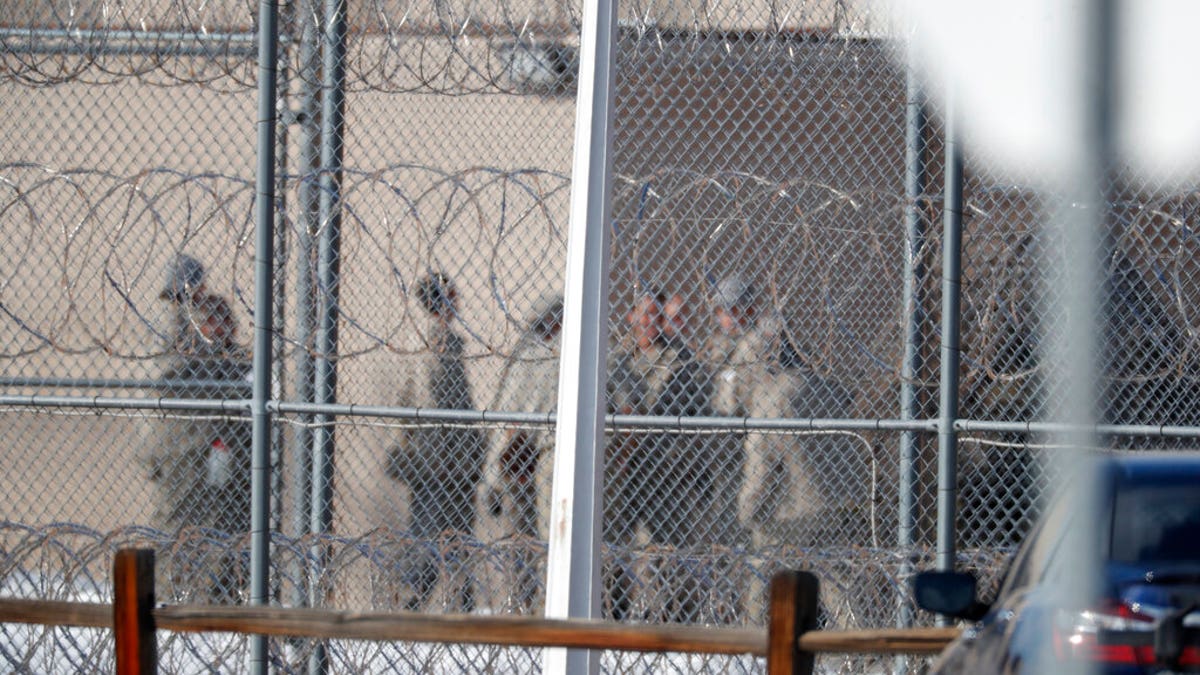Amid coronavirus crisis some local governments step back from enforcing the law
In Los Angeles, Cleveland and other U.S. cities, officials have begun releasing prisoners early to stop coronavirus spread; reaction from Nicole Malliotakis, Republican member of the New York State Assembly.
Get all the latest news on coronavirus and more delivered daily to your inbox. Sign up here.
As the coronavirus continues to spread around the world claiming lives and rattling the global economy, major U.S. prisons such as Rikers Island in New York City are considering releasing their inmates to prevent a potentially catastrophic situation.
The debate over whether to release the prisoners follows Iran’s move on Tuesday to free some 85,000 inmates from its deeply infested and dilapidated prisons. The U.K., likewise, has suggested similar measures.
When asked Sunday on Sky News about the possibility of releasing prisoners, General Secretary Steve Gillan said: "There are no plans now to release prisoners but it cannot be ruled out."

FILE: Inmates pass the time within their cell block at the Twin Falls County Jail in Twin Falls, Idaho. (The Times-News via AP)
America's nearly 7,000 jails, prisons and correction facilities pose a fertile breeding ground for the virus, given inadequate health conditions in normal circumstances, as well as the inmates’ close proximity to one another. Though no cases have been reported in any of the nation’s prisons, advocates of releasing the inmates say prisons represent a ticking time bomb if nothing is done.
Calls for action have only grown louder following the death of David Perez, a New York City Department of Correction investigator, who died this week after testing positive for COVID-19.
“The only way we can possibly keep incarcerated people safe is to release them,” said Justine Olderman, executive director of the advocacy group Bronx Defenders. “The next best thing is to drastically reduce the number of people being held. Neither of those things are being done right now. As public defenders, what we’re actually seeing happen is the opposite, and it is terrifying.”
While some cities, including Los Angeles and Cleveland, have begun releasing some inmates, no concerted effort at the federal level has taken place.
On Friday, the Federal Bureau of Prisons released safety guidelines on managing prisons during the outbreak but stopped short of calling for releasing prisoners.
In Illinois, state and local officials are considering releasing their most vulnerable detainees, including the elderly and those with the most urgent health care needs, the Chicago Tribune reported.
Last Thursday, dozens of advocates and attorneys sent a letter to Gov. J.B. Pritzker requesting that he “consider immediately ordering a review of all people in Illinois prisons and jails who are elderly or infirm, with an eye toward providing medical furloughs or compassionate release to as many of them as possible.”
An op-ed written by medical experts and published in The Washington Post Thursday echoed those calls.
“Authorities should release those who do not pose an immediate danger to public safety, while also reducing arrests and delaying sentencings,” the authors wrote.
The authors acknowledged that such a move could “carry inherent political risks” but stressed that they would be for “the greater good of the public at large.”

FILE: Prisoners stand outside of the federal correctional institution in Englewood, Colo. (AP)
The Cook County Sheriff’s Office, meanwhile, said it has been calling outside jurisdictions “for inmates who are held on warrants for non-violent offenses, asking that the warrant be quashed and recalled or geographically limited so that the detainee can be released.”
Sharlyn Grace, executive director of the Chicago Community Bond Fund, applauded the move but said more “dramatic changes” are needed.
Jennifer Soble, executive director of the Illinois Prison Project, said the crisis is highlighting problems that have existing in the prison system for decades.
During a recent appearance on MSNBC, Rep. Ayanna Pressley, D-Mass., likened U.S. prisons to a “petri dish” for spreading the coronavirus.
“This pandemic, COVID-19, has certainly highlighted and exasperated every socio, ratio, and political fault line in our country,” she said. “And given the crowding and overpopulating in our prisons for a confluence of other reasons … are an ecosystem in a petri dish for the spreading of this pandemic.”
Still, not everyone is on board with the idea of releasing prisoners. The Correction Officers’ Benevolent Association has called a temporary release proposal signed Tuesday by 30 prosecutors “asinine” and “irresponsible.” Instead, the association suggested providing more masks, gloves and hand sanitizers to corrections officers.
CLICK HERE TO GET THE FOX NEWS APP
Speaking to Fox News Wednesday evening, New York Republican Assemblywoman Nicole Malliotakis called it “absolutely disgraceful” that elected officials would entertain such ideas during a crisis emergency situation. She pointed that under New York’s bail law, which took effect in January, 90 percent of the city’s incarcerated population is already being released.
“So, what’s left in Rikers Island are suspected murderers, rapists, gang members, heavy drug traffickers, and certainly that’s not what we should be releasing back on to our street during this particularly difficult time, or ever," she said.
The Associated Press contributed to this report.








































